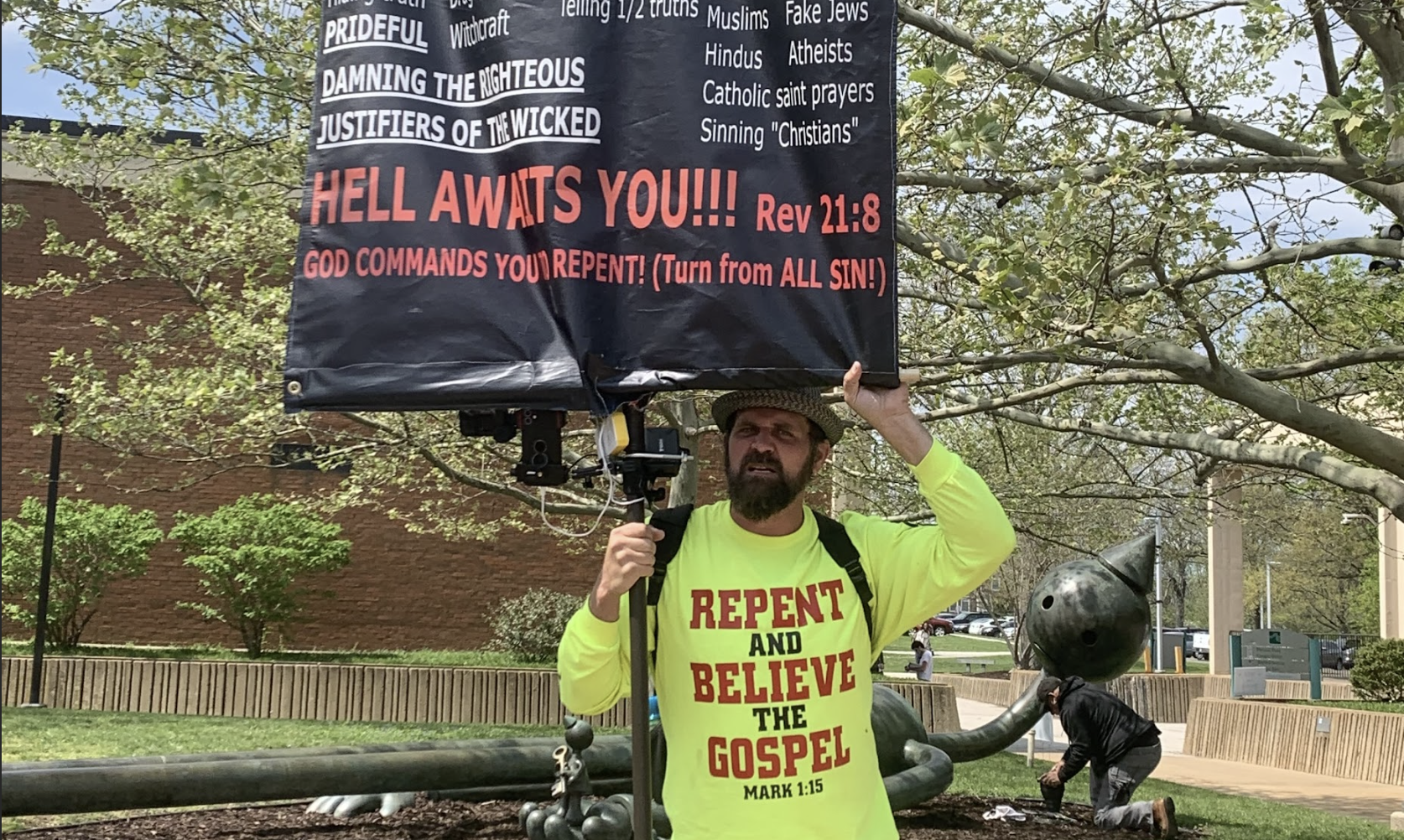“Everything Everywhere All at Once” Review
BY: GENEVA LEE
News Editor

How can apathy and all emotions at once, complete numbness and total feeling, twinned, exist at once? So many chores and crises near and away, witness to everything. It is…too much.
Everything Everywhere all at Once (2022) delves into nihilism in the face of the infinite barrage of attention- and care – demanding tasks every person is subject to everyday. Tall expectations, duty, disappointment. The main character, Evelyn, is a laundromat owner who is facing an IRS audit, divorce from her husband, Waymond, and estrangement from her daughter, Joy, who sexuality Evelyn refuses to accept. While at the IRS, Evelyn discovers that it is possible to “jump” between different versions of oneself in infinite realities—created by splits in one’s decision-making, the life an individual would have had if they had made a different choice in the past—and one can acquire all of the memories, experiences, and skills of the alternate self. She learns that in another universe, she pushed Joy too hard in mastering jumping, and she now experiences all aspects of all realities at once, driving her insane and turning her into “Jobu Tupaki.” Jobu Tupaki seems committed to destroying all universes, and Evelyn is tasked with stopping her.
The film shows Evelyn’s alternate lives—one she is particularly pulled into is a life where she turned down Waymond and became a Chinese movie star. A chef, an opera singer, so many lives that are just better. Evelyn becomes increasingly skilled at jumping, and when she encounters Jobu Tupaki, she learns her daughter isn’t trying to destroy the multiverse, but pull Evelyn in so that she experiences and understands the abject apathy of believing that nothing matters when there is so much at once. Evelyn falls into the same despair, until her husband reminds her to always be kind and hopeful, and she tells Jobu Tupaki that she will always choose to be with her, no matter where else she could be, and she will always cherish the small, bright moments of joy and meaning with her against the deluge of all else. Jobu Tupaki reconciles with Evelyn and becomes Joy again.
This sci-fi film, like many others, distracts with the fanaticism of the genre and complexity of the plot so that the audience doesn’t even recognize the emotional impact until the film tips its hand and pulls tears at the perfect moment. The resonance, the understanding, and empathy of this film, how I feel every day in a world that is too harsh and too much for just one girl who just wants to lay on the floor, and how it is love that strikes through the dense metal of life and cuts parts and sandstorm with blue clean air. Everything is an ode to love, to mother’s love, honoring the bond between child and caregiver (whether that is a mother or another parent, grandparent, sibling, mentor). This film washed me in the love of the person that I care about most, who I live for when there is nothing else, who I tell everything and snuggle with, my mom. There is no one in life who compares to her, whose name every person cries when in their greatest need… Mom.
This is the same person who gave us life damned us to these circumstances, entered our names into a social contract to which we never consented. Mothers are the ones who not just give but force life. But they are the ones who hold our hands always, even imperfectly, who show us the world, who find the four-leaf clover in the field and put it between the folds of the book so we can keep and look at it years later. They’re the ones who give life Life.
Most action movie heroes are the buff, tall, white men who male yuppie viewers wish that they were, the Captain America whose shoes they could see themselves filling in their dreams. For lip service to diversity, a svelte Scarlett Johansson is given screen time, but they don’t cast her to represent the girls who want to be heroes, she’s for the teenaged boys and men. But Michelle Yeoh, who plays Evelyn, 59 years old, a mom, ESL, twiggy, who doesn’t “achieve” glory or material wealth at the end, let alone widespread recognition or fame—I see my mom, Michelle, 52 years old, a mom, on the screen. I see a regular woman, with shortcomings, with the wrinkles I’ll have, a person that I could actually be. Yeoh is no longer a Bond Girl, nor Bond: She’s more.
There has rarely ever been a movie made that can make its audience feel like this. This is the only film that has really understood arguably the most important thing in life. The thing that matters most. The person who is everything and is everywhere with me at all times.











